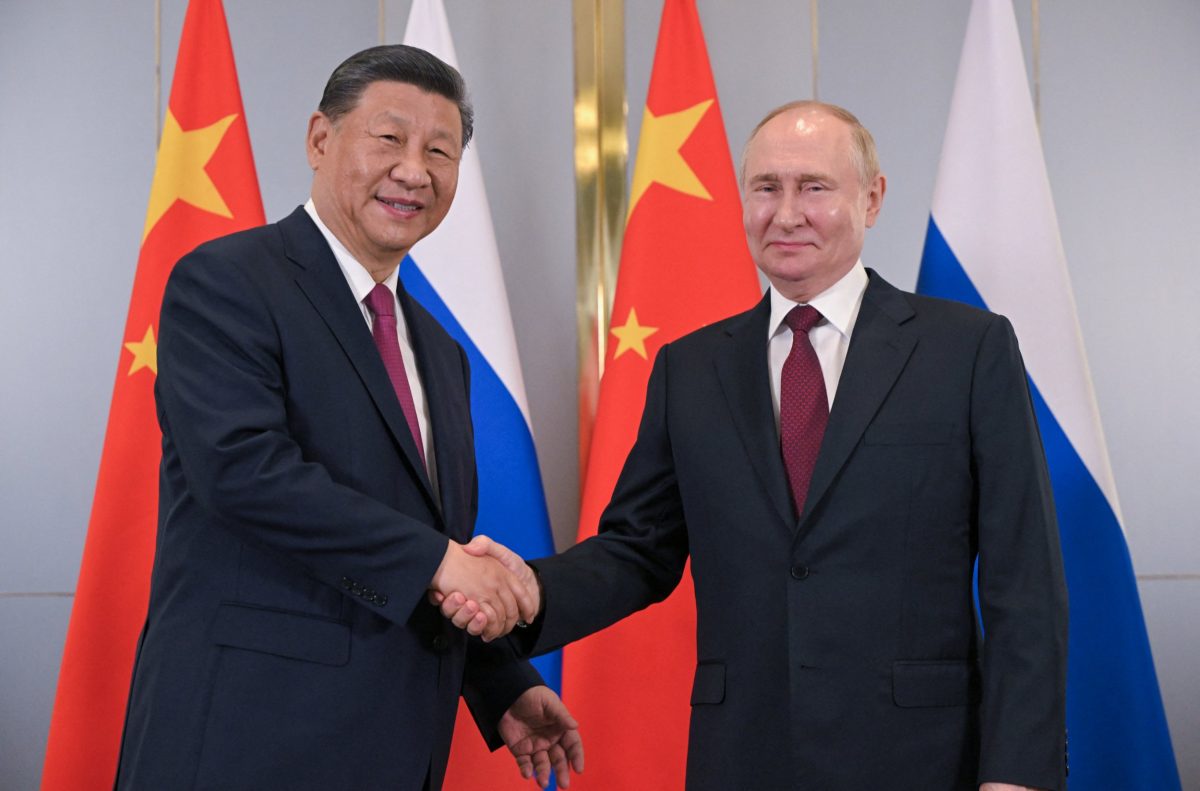The Potential for a Coordinated Attack by China and Russia
The head of NATO has raised concerns that China might ask Russia to launch an attack on a NATO member state as a way to divert attention from its own potential invasion of Taiwan. Mark Rutte, the NATO Secretary General, warned that if Chinese President Xi Jinping were to consider an attack on Taiwan, he would likely contact Russian President Vladimir Putin, asking him to “keep them busy in Europe by attacking NATO territory.” Rutte emphasized that this scenario is “most likely” to progress in such a manner.
However, the likelihood of a coordinated attack between China and Russia remains uncertain. While experts agree that a long-planned joint operation is unlikely in the near future, there is concern about how both countries might act if an opportunity arises. China views Taiwan as part of its territory and has repeatedly stated its intention to achieve “inevitable reunification,” even through force if necessary. Over the past year, China has escalated military activity near Taiwan, including sending warplanes and ships into the area. In May, U.S. Defense Secretary Pete Hegseth warned that a Chinese military attack on Taiwan could be imminent.
Admiral Samuel Paparo, head of the U.S. Indo-Pacific Command, noted that the Chinese military is working toward its goal of being ready to take Taiwan by force by 2027. According to NATO intelligence, China is increasingly preparing for an invasion of Taiwan and may do so in coordination with Russia.
Despite these warnings, some experts believe a coordinated attack is highly unlikely. Dr. William Matthews, a senior research fellow at Chatham House, argues that China has been cautious in its approach to Taiwan to avoid all-out war. He suggests that China will likely continue its current strategy of applying pressure without crossing into full-scale invasion, as starting a war with Taiwan could lead to a conflict with the United States. Additionally, engaging in a war with NATO would be against China’s interests, given its focus on maintaining trade relationships.
Matthews also highlights that China would want to avoid damaging its global economic ties, which makes it unlikely that it would support an attack on Europe. However, Dr. Sidharth Kaushal of the Royal United Services Institute notes that even if there is no pre-existing plan, Russia could take advantage of a situation elsewhere to act opportunistically.
The Relationship Between China and Russia
China and Russia have had close defense cooperation since the 1990s, with China playing a key role in enabling Russia’s invasion of Ukraine by supplying tools and microelectronics. China is also a major consumer of Russian oil, helping to fund Russia’s military operations. However, there is no formal alliance between the two countries, and their cooperation has limits. Unlike North Korea or Iran, China has not sent soldiers to help Russia in Ukraine or directly provided weapons.
Despite this, the possibility of China and Russia supporting each other in a conflict cannot be ruled out. If one country perceives an opportunity, or if it fears that its partner is losing ground, it might choose to provide direct military assistance. Dr. Kaushal warns that a simultaneous attack by both countries would be the most stressful scenario for NATO to plan against, even if there is no formal alliance.
Risks of a Two-Front War
A coordinated attack by China and Russia would have devastating consequences. Dr. Matthews warns that such a conflict would risk nuclear Armageddon and cause massive damage to China’s carefully cultivated economic relationships. It would also draw significant American military resources to the Pacific, leaving Europe vulnerable.
Dr. Kaushal emphasizes that the U.S. plays a critical role in providing air and missile defense capabilities in Europe. If those resources are redirected to the Indo-Pacific, the military balance in Europe would shift dramatically. This could create a dangerous situation where NATO would struggle to defend itself.
Economic Consequences
A dual conflict would have severe economic repercussions. Experts warn that a war in Asia could cause significant damage to the global economy, leading to shortages of medicines, disruptions in phone networks, and blocked shipping routes. A study suggested that the U.S. economy could contract by around 17%, while East Asian economies, including China’s, could see a contraction of up to 35%. Combining this with a conflict in Europe could lead to a global economic downturn.
Despite these risks, Dr. Kaushal believes that China might still initiate a conflict if it feels it can win quickly or if it becomes desperate, such as if Taiwan moves toward de jure independence. The strategic and economic stakes are high, and the potential for conflict remains a serious concern for the international community.






